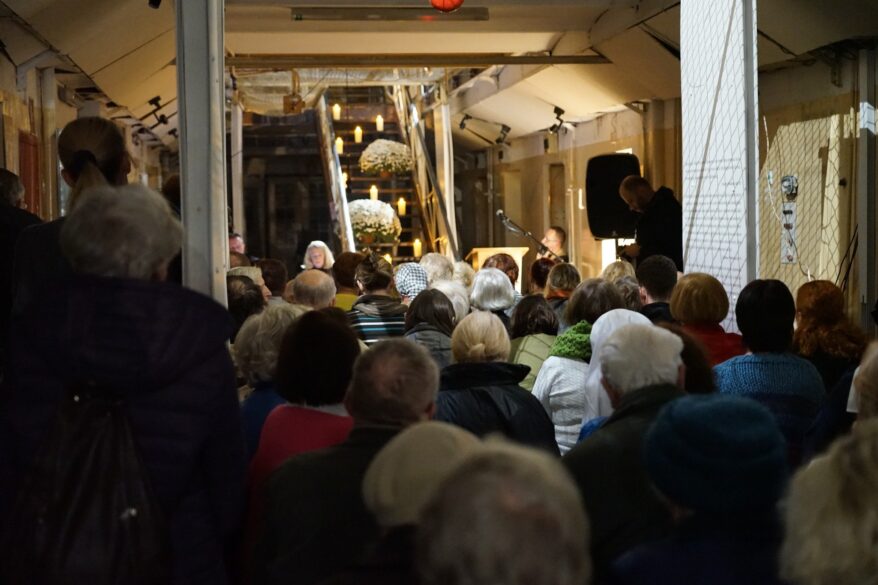IN EXILE
By Father Ron Rolheiser, OMI
God behaves in the psalms in ways that God is not allowed to behave in theology.
That quip comes from Sebastian Moore and should be highlighted at a time when fewer people want to use the psalms in prayer because they feel offended by what they sometimes find there. More and more, we see people resisting the psalms as a way to pray (or desire to sanitize them) because the psalms speak of murder, revenge, anger, violence, war-making, and patriarchy.

Some ask, how can I pray with words that are full of hatred, anger, violence, speak of the glories of war, and of crushing one’s enemies in the name of God? For others, the objection is to a patriarchal coloring in the psalms – where the divine is masculine and the masculine is too-much deified. For yet others, the offense is aesthetic. Their objection: “They’re bad poetry!”
Perhaps the psalms aren’t great poetry and undeniably do smack of violence, war, hatred of one’s enemies, and the desire for vengeance, all in the name of God. Admittedly, they’re also patriarchal in character. But does that make them a bad language for prayer? Let me suggest something to the contrary.
One of the classical definitions of prayer says “prayer is lifting mind and heart to God.” Simple, clear, accurate. I suggest that the actual problem is that we seldom actually do this when we pray. Rather than lifting up to God what is actually on our minds and in our hearts, we tend to treat God as someone from whom we need to hide the real truth of our thoughts and feelings. Instead of pouring out mind and heart, we tell God what we think God wants to hear – not murderous thoughts, desire for vengeance, or our disappointment with God.
But expressing those feelings is the whole point. What makes the psalms particularly apt for prayer is that they do not hide the truth from God but express the whole gamut of our actual feelings. They give an honest voice to what’s actually going on in our minds and hearts.
Sometimes we feel good and our spontaneous impulse is to speak words of praise and gratitude, and the psalms give us that voice. They speak of God’s goodness in everything – love, friends, faith, health, food, wine, enjoyment. But we don’t always feel that way. Our lives also have their cold, lonely seasons when disappointment and bitterness simmer or rage under the surface. The psalms give us honest voice where we can open up all those simmering feelings to God. Also, there are times when we are filled with the sense of our own inadequacy, with the fact that we cannot measure up to the trust and love that’s given us. Again, the psalms give us voice for this, asking God to be merciful and to soften our hearts, wash us clean, and give us a new start.
As well, there are times when we feel bitterly disappointed with God and need some way to express this. The psalms give us voice for this (“Why are you so silent?” “Why are you so far from me?”) even as they make us aware that God is not afraid of our anger and bitterness; but, like a loving parent, only wants us to come and talk about it. The psalms are a privileged vehicle for prayer because they lift the full range of our thoughts and feelings to God.
However, there are a number of reasons why we struggle with that. First, because our age tends to eschew metaphor and taken literally, some of the images in the psalms are offensive. Second, we tend to be in denial about our actual feelings. It’s hard to admit that we feel some of the things we sometimes feel – grandiosity, sexual obsessions, jealousies, bitterness, paranoia, murderous thoughts, disappointment with God, doubts in our faith. Too often our prayer belies our actual thoughts and feelings. It tells God what we think God wants to hear. The psalms are more honest.
To pray with full honesty is a challenge. Kathleen Norris puts it this way: If you pray regularly “there is no way you can do it right. You are not always going to sit up straight, let alone think holy thoughts. You’re not going to wear your best clothes but whatever isn’t in the dirty clothes basket. You come to the Bible’s great `book of praise’ through all the moods and conditions of life, and while you feel like hell, you sing anyway. To your surprise, you find that the psalms do not deny your true feelings but allow you to reflect them, right in front of God and everyone.”
Feel-good aphorisms that express how we think we ought to feel are no substitute for the earthy realism of the psalms which express how sometimes we actually do feel. Anyone who would lift mind and heart to God without ever mentioning feelings of bitterness, jealousy, vengeance, hatred, and war, should write slogans for greeting cards and not be anyone’s spiritual advisor.
(Oblate Father Ron Rolheiser is a theologian, teacher and award-winning author. He can be contacted through his website www.ronrolheiser.com.)






